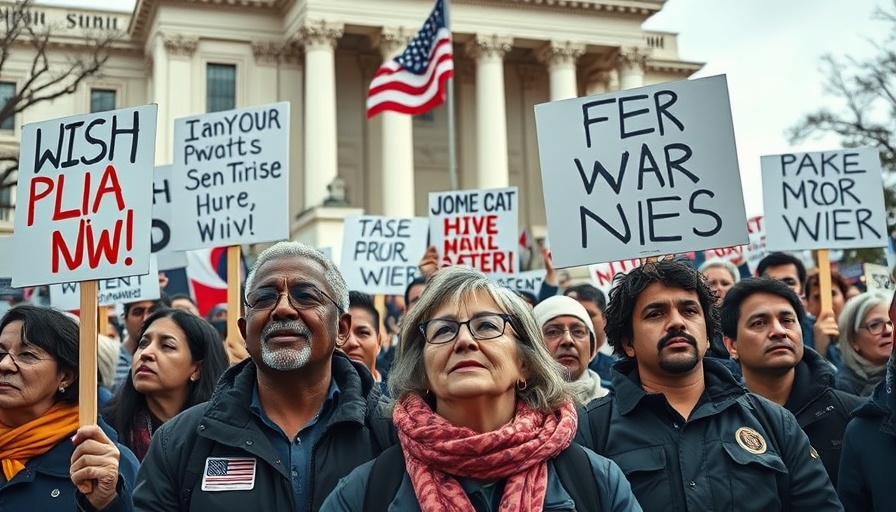
Is the U.S. Approaching War with Iran? The Current State of Events
On June 22, 2025, President Trump took decisive military action against Iran's nuclear facilities without seeking congressional approval. This controversial strike has ignited a heated debate about war powers in the United States and whether the president can act unilaterally in matters of war.
The Legal Debate Surrounding War Powers
The U.S. Constitution expressly grants Congress the authority to declare war, yet President Trump proceeded without this necessary authorization. Critics, including many lawmakers from both sides of the aisle, describe his actions as a de facto declaration of war, arguing that this sets a concerning precedent for executive power. Trump’s aides argue the strike was limited, aimed solely at nuclear capabilities, thus not classified as a declaration of war.
Despite this characterization, the implications of the strike raise significant legal and ethical questions. Secretary of State Marco Rubio defended the action as necessary, stating, "This is not a war against Iran." However, many lawmakers fear the escalation that could follow if Iran chooses to retaliate, thus risking a broader conflict.
International Reactions and Potential Consequences
Simultaneously, Israel has recently engaged in its own offensive against Iran, complicating the international landscape. Experts caution that further escalation could ensue following the U.S. strikes, heightening tensions across the Middle East. These developments come amid years of bipartisan congressional efforts to restrict presidential military authority, an initiative driven by past U.S. military interventions that necessitated reevaluation.
Public Sentiment and Political Fallout
Public opinion is sharply divided, with many Americans feeling uneasy about the potential for a protracted conflict. Protests have erupted outside the White House as demonstrators voice their discontent with Trump's unilateral decision. The absence of meaningful discussion and debate before such consequential military actions amplifies public anxiety over national security and governance.
Critics contend that the American public deserves a greater role in discussing military actions that could lead to escalation, such as full-scale war, showcasing a disconnect between policymakers and constituents.
Looking Ahead: What Might Happen Next?
The future remains uncertain. As ongoing tensions with Iran, challenges to diplomatic relations, and public skepticism grow, the next course of action will likely test the boundaries of the current administration's approach to foreign policy. Observers are keenly monitoring how Congress will respond—whether it will impose further restrictions on military actions or consider the implications of Trump’s expansive interpretation of his authority.
Additionally, if Trump chooses to advocate for regime change, as suggested in his recent remarks about making Iran great again, the debate over interventionism will undoubtedly intensify—potentially reconfiguring U.S. priorities in the region.
Conclusion: The Importance of Civic Engagement
As citizens, it is crucial to stay informed and engaged, not only in understanding the implications of potential military actions but also in participating actively in the democratic process. Advocating for accountability in government decisions—especially those that risk lives—ensures that democracy is preserved and that the voices of constituents resound in key policy discussions.
This situation serves as a reminder of the power dynamics in American governance. The public must remain vigilant and demand transparency and dialogue from their elected officials. Together, we can shape a more informed perspective on our nation's foreign interventions moving forward.
 Add Row
Add Row  Add
Add 




 Add Row
Add Row  Add
Add 

Write A Comment